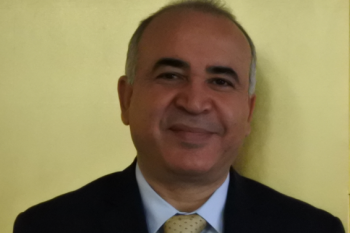Events
Rejection of violence and the promotion of dialogue for stability of the region
— How do you see the development of Tunisia-Japan relations? Would you tell us about your challenges as the Ambassador to Japan?
The relationship between Japan and Tunisia has deepened significantly and the bilateral friendship has further been reinforced over the last 62 years since the establishment of diplomatic relations. Tunisia has achieved a close relationship with Japan and is now sharing democratic values, since the Revolution of 2011 . Tunisia is very grateful for the substantial support from Japan in areas such as economic development, education and human resource development. Now, it is time for our two countries to enter into a new win-win partnership. Promoting this new relationship is my job. Developing legal frameworks for business activities is very important, and we are working hard to conclude an investment treaty and a tax agreement t. Japanese companies are beginning to show an interest in investing in Tunisia, in power plants, seawater desalination plants, renewable energy, car components and other manufacturing industries. Political relations between both countries are also favorable. The Japan-Tunisia Joint Committee meets regularly. Our countries also cooperate closely in tackling various international issues. Lastly , universities in both countries enjoy active academic exchanges, especially the University of Tsukuba which has an office in Tunisia.
— Tunisia is regarded as the only successful case of the Arab spring and the National Dialogue Quartet received the 2015 Nobel Peace Prize for helping transition to democracy. How has the democratization process progressed?
Although the Jasmine Revolution brought the old authoritarian regime down and established a new political system. The transition to democracy is not easy and is time-consuming . Fortunately, we successfully formed the Tunisian National Dialogue Quartet in order to achieve a national consensus. It was believed at the time that political and ideological conflicts could be resolved peacefully through dialogue and that a national consensus would be the driving factor toward democratization. In 2014, a new revolutionary constitution was enacted. The new constitution provides for the freedom of belief and conscience, gender equality and the rule of law. The social advancement of women in Tunisia has made significant headway. The proportion of female Members of Parliament in Tunisia is 36%, exceeding the 27% ratio in the EU. Our democratization has advanced considerably. Our last general and presidential elections were conducted in a fair and transparent manner. As a result, we successfully inaugurated a national unity government through an alliance of different parties and different perspectives including secularists and religiously inspired parties .
— There were street protests in January against the austerity policy. How is the current social situation?
The Tunisian government has been concentrating on democratic transition for five years. During this period, economic reforms were stagnant and measures to curb high unemployment and price increases were overlooked. We saw protest activities against some austerity policies when the budget for the next fiscal year was submitted. These policies resulted in price increases for daily necessities coupled with a tax hike . However, the social situation is now stable as the need for reform was finally accepted. It was also understood that any delay in such reform measures could create an even greater burden on citizens down the road. The Tunisian government is actively promoting an understanding of its economic reform policies through dialogue with those within financial circles as well as trade unions.
— Would you tell us about the recent economic situation of your country? What are the challenges in economic reforms?
In 2017, we had a GDP growth rate of 1.9% and the unemployment rate was 15%. Our economy is beginning to recover in 2018. Tourism, devastated by two terrorist attacks in 2015, is also recovering. The number of visitors to Tunisia was approximately 7 million per year before the Revolution. We expect this number to increase to 8 million this year. Tunisia is also attractive as a base of operations for exports since we have signed free trade agreements with Europe, the African continent and the Middle East. Tunisia’s comparative advantages include a skilled human resources, freedom of investment, and simplified procedures for business establishment thanks to the administrative reforms that have been enacted. We are planning to put our economy on a growth track by improving public finances and establishing a positive investment climate through the implementation of new investment regulations and PPP laws.
— What do you think is necessary for the countries concerned to stabilize the Middle East and North Africa region?
Tunisia is collaborating with the international community to address pressing common challenges in the region, including terrorism. Each country has its own solutions and countermeasures based on specific experiences. For Tunisia, rejection of violence and the promotion of dialogue are important. With our immediate neighbor, Libya, unfortunately, there is political turmoil caused by conflicting political forces. They are trying to find a way to resolve the problem through political dialogue. Pre-requisites for success include the rejection of violence, the recognition of the territorial integrity of the country and rejection of foreign intervention. Adherence to these guidelines will be required if there is to be stability in the region. There are some other difficulties that go beyond the Arab world such as the Palestinian problem. However, no peaceful settlement that guarantees security and protects the interests of the countries in the region has been put on the table yet. And things are not currently moving in the right direction.
(Interview by Shu Tamaru, FEC Counsellor)
